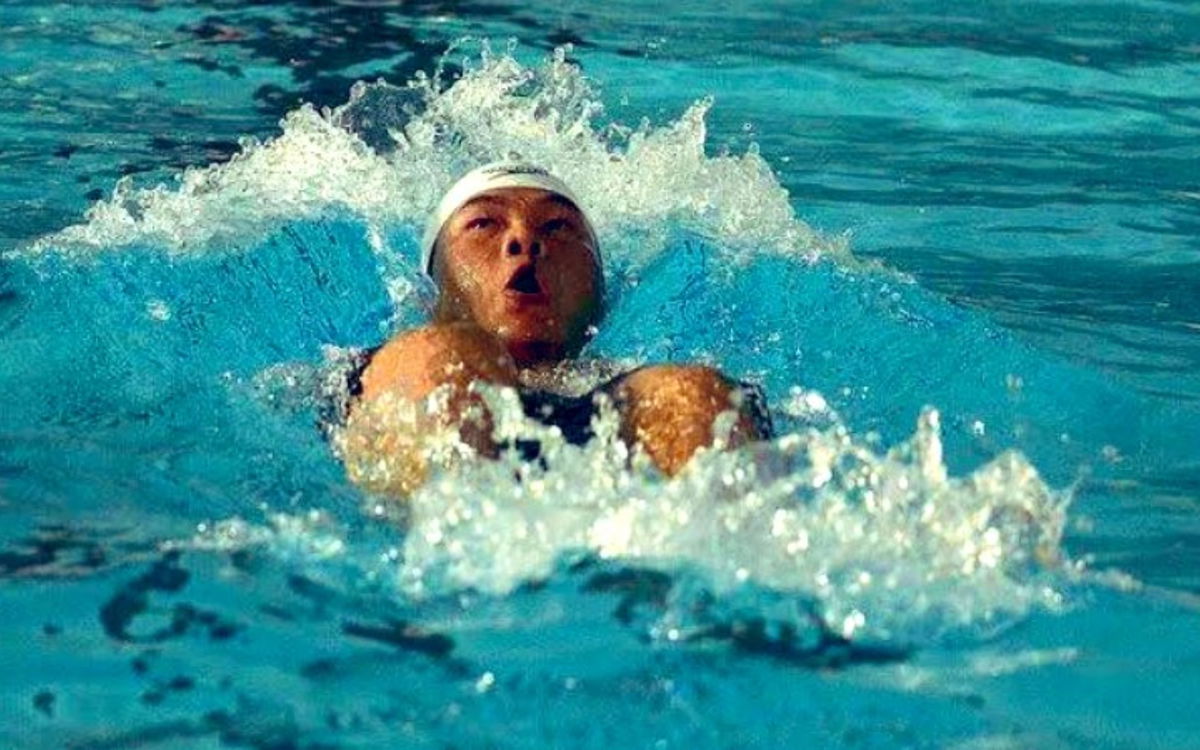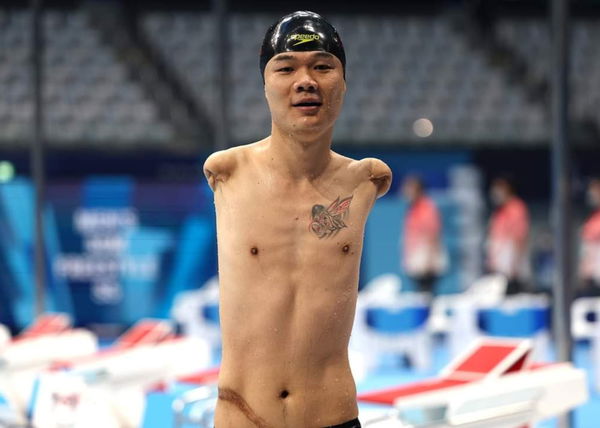

The Olympic stage is where unforgettable stories come to life, and one such story captured everyone’s hearts at the 2020 Tokyo Olympics and Paralympics. Born in a small, impoverished village in Yunnan, China, this athlete, known as the “finless flying fish,” lost both arms at the age of six after accidentally touching a live electric cable while playing.
Watch What’s Trending Now!
In 2004, swimming coach Zhang Honghu, with the Yunnan Disabled Persons’ Federation, visited his village to find potential athletes. He saw promise in the boy’s physique for competitive swimming, but the boy’s family was worried it would be too hard on him. However, the young boy was determined not to be seen as “useless”—a harsh label often put on disabled people.
Despite the initial pushback, he joined the provincial team and started serious training at 14. Soon, he was picked for the national team. Coach Zhang knew the secret to his potential success: “He has a gift for swimming, but more importantly, he is willing to work hard.” While other kids spent about five hours in the pool daily, this dedicated swimmer practiced for eight to nine hours daily.
ADVERTISEMENT
This athlete also faced setbacks at the Rio Paralympics due to injuries to his back and a lumbar muscle strain. But he underwent rigorous rehabilitation and training, making a remarkable comeback at the Tokyo Olympics, where he exceeded expectations and set new records in the pool.
How the “finless flying fish” made swimming history at the Olympics
In an Instagram post by CPNRI, the account shared a throwback of a jaw-dropping moment from the Tokyo 2020 Paralympics featuring the amazing Zheng Tao. Despite facing the daunting challenge of losing his arms to an electric shock in his childhood, Zheng defied all odds in a gripping race captured in the video. The accompanying caption read: “Not letting anything stop him.”
ADVERTISEMENT
With Wang Lichao and Yuan Weiyi trailing behind, Zheng’s sheer speed and agility carried him to victory, breaking his own record in the 50-meter backstroke with a remarkable time of 31.42 seconds and clinching the gold medal. But his triumph didn’t end there. At the 2021 Tokyo Paralympics, Zheng soared to even greater heights, claiming gold medals in the men’s butterfly S5 event with a world-record time of 30.62 seconds and the 50m freestyle S5.
View this post on Instagram
ADVERTISEMENT
Additionally, he played a pivotal role in securing gold in the mixed 4x50m freestyle relay with 20 points. As we reflect on Zheng Tao’s awe-inspiring moment, let us also see the profound preparation and heartfelt sentiments he shared with a special someone, stirring the hearts of swimming fans worldwide.
Top Stories
Cam Newton Makes NFL Return Conditions Clear to 32 Teams as Panthers Legend Confirms Retirement Stance

Caitlin Clark Shows Concerning Signs vs. Kelsey Plum During USA Camp Debut, per National Reporter

Tom Brady Makes Career Announcement for Vegas as Pete Carroll Addresses Losing Raiders Locker Room

“RIP”: Prayers Pour In as Tom Brady’s Raiders Struck by Tragedy

“NFL Was Crying”: Maxx Crosby Says League Forced Him to Remove Shoes Honoring His Daughter

“Rest in Peace”: Prayers Pour In From Dan Marino as Dolphins Legend Mourns Tragedy in South Florida Football

How Zheng Tao captured hearts worldwide with his powerful message
Zheng Tao then 31 years old, had reached the finals in swimming at the 2012 and 2016 Olympics but narrowly missed gold both times, settling for silver. After the races, he expressed, “I made it. I wanted the gold so bad.” Yet, it was his heartfelt exchange with his two-year-old daughter, captured on camera, that truly resonated with millions worldwide.
ADVERTISEMENT
In that emotional moment, Zheng’s words, “Daughter, look at me – I can swim so fast even though I don’t have arms,” became a beacon of inspiration for her and countless others. Little did he know that his example would touch the hearts of millions, as evidenced by the overwhelming response and 130 million views on Weibo, China’s social media platform. But that’s not all.

ADVERTISEMENT
The congratulatory letter from the Central Committee of the Communist Party of China and the State Council rightfully acknowledged Zheng and his fellow Paralympians as national inspirations, their achievements shedding light on inclusivity and sports for people with disabilities. Reflecting on this enduring moment of impact, we applaud Zheng Tao for his remarkable resilience and inspiring journey. What are your thoughts on this legendary swimmer’s extraordinary story? Share your thoughts in the comments below!
ADVERTISEMENT
ADVERTISEMENT
ADVERTISEMENT

